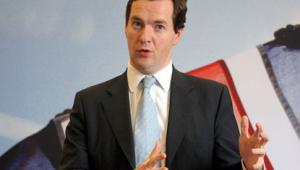Government has an unprecedented challenge in deciding what cuts to make and how they should be made. As recognised in the ‘Spending Review Framework’, there is a need to engage the public in the debate and generate ideas on areas for savings.
PricewaterhouseCoopers wanted to understand what the views would be of a group of individuals on the most important criteria for the Spending Review, if they were given access to the information available to government, and if they had the opportunity to debate the issues over several days. We therefore convened a Citizens’ Jury of 24 members of the public whose findings were recently presented to the Chief Secretary to the Treasury to debate and discuss ideas on areas for savings.
We found that the coalition still has a huge job to do in order to engage and inform the public and understand how citizens respond to the deficit. The experience of the Citizens’ Jury shows that the public is hungry for knowledge about the deficit, but that current communications around the fiscal consolidation have yet to hit the mark. The better the information given to the public, the more likely it is that more ‘permission’ will be given to make the hard choices necessary for our country.
The opinion of the jury moved considerably over a three-day period when given expert insights and time to reflect – a similar response is needed from the wider public if the government is to convince the public of the unprecedented change required. It is therefore possible for government to build more understanding of the need for tough decisions.
A key jury verdict was that no public spending area should remain protected from scrutiny given the scale of the challenge ahead. The jury was adamant there should be no ‘sacred cows’, including expenditure on the NHS and international development.
Swedish and Canadian experience is that engaging and educating the public are crucial ingredients of successful consolidations. The evidence from the jury and the wider polling of the public indicates that people currently do not understand the problem and what that means in terms of the scale of the cuts that are to come.
It is clear that there needs to be transparency about the full extent of the problem and there is a cross-government ‘big picture’ message that needs to be outlined. The jury’s verdict was that once they understood the scale of the problem, they would be prepared to accept decisions that would impact them personally.
A key lesson from the deliberations is that if citizens are told the facts by experts, and given a nudge they will understand and be more likely to take shared ownership of the challenge, and give their support to collective action. If they do not understand the problem first they are less likely to accept the solutions set out on 20 October.
Dame Julie Mellor is a partner at PricewaterhouseCoopers











